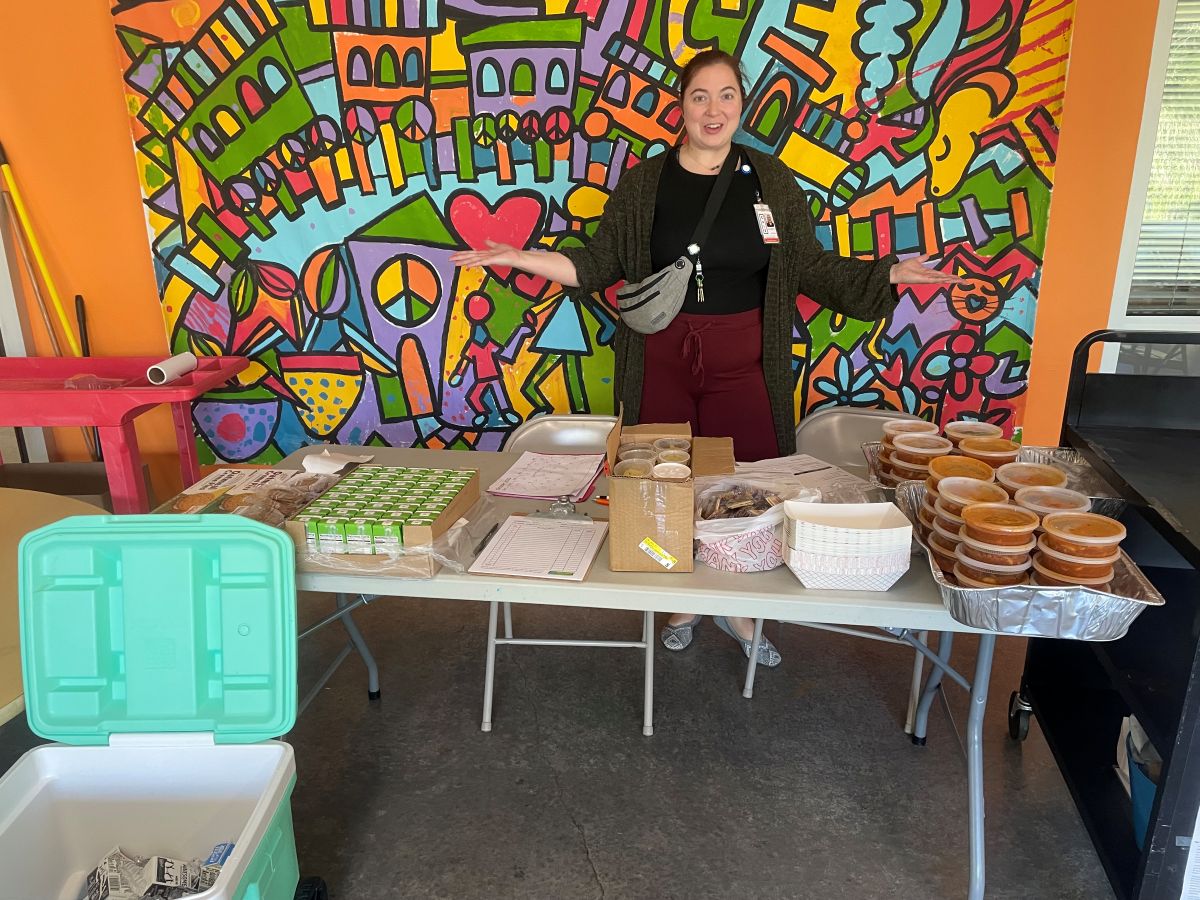From Storytime to Suppertime
October 30, 2025

Libraries as Hubs for Food Security and Education
At-Risk Afterschool (ARAS) is an important part of the CACFP that serves meals and snacks to children and teens up to the age of 18 when the school day is over. Each day, over 4.7 million children receive nutritious meals and/or snacks through At-Risk Afterschool programs. ARAS snack and supper can be offered at a variety of different sites, from a traditional afterschool site like Boys & Girls Clubs or YMCAs to churches and libraries.
The Central Arkansas Library System (CALS) operates CACFP ARAS and the Summer Food Service Program (SFSP) through its “Be Mighty” program. The Be Mighty program runs in 11 branches throughout the Little Rock, Arkansas area and serves over 63,000 meals and snacks each year.
Mighty was launched in 2018 when the City of Little Rock received grant funding after being designated as a CHAMPS (Cities Combating Hunger through Afterschool and Summer Meal Programs) city by the National League of Cities.
“After school, our libraries are full of kids. Our libraries are a safe place for kids to go while waiting for their parents to pick them up. Our libraries provide extensive programming for children and teens. The problem wasn’t getting them here, it was getting them food when they were hungry after school Be. So, we turned to CACFP to help support the service of nutritious meals and snacks.”
The program was so successful that Be Mighty has continued operating past the end of their grant period. There was also a clear need for food programs in Little Rock, as Arkansas remains the State with the highest rate of food insecurity and every CALS branch met the Area Eligibility criteria for ARAS. Be Mighty is now funded through a joint effort with the City of Little Rock, CALS and the Arkansas Hunger Relief Alliance to continue to address community needs. Jessica Frazier-Emerson, the Be Mighty Coordinator, explains how their meal service helps families stretch their food budgets and helps students thrive in school.
“In our area, it can be really challenging to access food resources – whether it’s SNAP asset limits, receiving state grocery assistance, or the distance of grocery stores. The CACFP helps mitigate some of the challenges for families by providing suppers and snacks to the children it serves. Families can then use their budget to supply more groceries, including healthier snacks or heartier meals at home on the weekends. This can drastically impact how students show up at school.”
Although libraries may not be set up to cook meals on site and may not be the first place that comes to mind when thinking of accessing meals, Be Mighty has found a model that is successful. Be Mighty’s CACFP sponsoring organization, Bridge 2 Success, also acts as their vendor and prepares and delivers creditable suppers and snacks to all of the libraries each school day. Jessica raves about the menus created by Bridge 2 Success. The meals are hot and fresh and include delicious items like chili mac, chicken and dumplings and walking tacos. Jessica works with their local department of health and safety to make sure the meals are delivered at the right temperature and are safe to serve.
Jessica has seen, first-hand, the impact that libraries can have in supporting food security in their communities. The meal service also helps to boost the library’s image in the community and promote its educational programs as well. Through a survey conducted by CALS, Jessica found that people visiting the library are typically millennial parents with their young children and older generations, but they had low visitation from young adults and teens. By providing a meal service, Be Mighty is able to attract these groups to the library and show them other ways the library can work for them.
“I think that showing students that you care from an early age really tells them that the libraries are there to support them through their lives. They’re coming in for story time as a kid, they’re coming in for meals as a teenager and a young adult and then they’ll continue to go to the library throughout their life. Libraries are creating a space to serve a meal and meet a need, but we’re also communicating how vital and important libraries are throughout our lives.”
One of the primary goals of libraries is to promote education and literacy. But it’s well known that children can’t learn on an empty stomach and their educational outcomes improve when they have consistent access to nutritious meals. Libraries can play a significant role in their communities by providing educational resources and programming, but also by helping to address food access and food insecurity.
